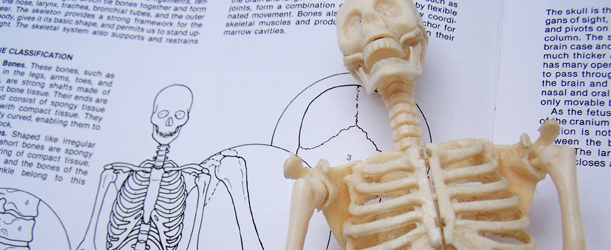
As many of you know, I’ve been dealing with several back issues over the last three or four years. This has recently reared its ugly head, hurting my ability to train the way I want and need to. From a fall and twelve years of heavy lifting to getting rear-ended in a car accident and improperly bending, laying, and sitting down twenty-four hours a day, I’ve put my back through hell. And after the difficulties I’ve had with training for my past two meets, and the pain during the meets themselves, I knew it was time to look at either getting my back fixed or walking away from the sport.
Thus, I pursued surgery 100 percent. I went to several neurosurgeons and several other types of doctors to get their opinions. Some said no to surgery—I had too much going on, there wasn’t a clear solution via surgery, and I was heading for a spinal fusion regardless. Their take on things was that surgery wouldn’t cure what I had going on.
One surgeon did offer a micro-discectomy; however, we both came to the conclusion that getting a myelogram would be the best route for now in order to know exactly what we were dealing with and whether the herniation would be best dealt with through surgery.
While I was looking into surgery, a few friends told me to seek out Dr. Stuart McGill. Although everyone has heard of him, I hesitated for a few reasons:
- I did not think that it was practical to see him, nor was it likely that it would actually happen.
- I thought surgery was my only real solution.
- With all of the experts out there, you are told a gazillion different things, and I was tired of trying so many ideas and making no substantial progress.
Finally, after my client Richard Brown suggested looking him up, I did. I wasn’t able to make contact with Dr. McGill immediately, so I put things on hold until another five people suggested that I go see him. Damon Amato, Scott McDiarmid, and Bob Youngs come to mind when I think of people who adamantly suggested that I needed to look into this.
Like I said, I was very skeptical, but after a conversation with Scott on the phone about how important it was to avoid surgery, I was starting to get the point (especially at my age and with everything I have going on in my imaging). I also talked to Dave Tate and a few other people, and they all confirmed that McGill was the guy to see—and that surgery should be the last option.
I respect the hell out of all these guys, and I heard what they were saying, but in my mind I had already tried everything I thought possible...and I had gotten nowhere. It’s important to note here that I had a pretty good meet in March, placing second overall (with better numbers than I had in 2012). However, I was disappointed in how my deadlift went south so badly, as well as my inability to train this lift pain-free. Whenever it was pain-free, it was also strength-free and with no power. I was growing impatient with the whole process, and I was ready to take drastic measures.
After wrestling with this for a while, I finally hunted down Dr. McGill’s email address and sent him a long and detailed message explaining everything I had tried, as well as my imagery. I didn’t expect a response because the only email address I could find was one people can use to get an autographed book from him. That wasn’t encouraging.
Much to my surprise, however, he emailed me back. We had a few conversations on the phone, and the next thing I knew, I was going to see him in less than two weeks.
I won’t lie—I was extremely skeptical at first. Like I said, I thought I had tried everything, and I was tired of the same old stuff. Another thing to note here is that once I stopped being active, I was in more pain. In turn, the more I rolled and if I received too much massage, the worse I felt. Also, a little bit of exercise (doing only the things that happened to be “correct” with no rolling or stretching) seemed to work really well. This didn’t flare my back or leg up.
So, what I ended up doing for the final six or seven weeks was nothing. I was a complete fat ass. I didn’t exercise much at all, and I really just experimented day-to-day, trying to figure out what made me feel good and what irritated things. To be honest, I had temporarily given up. I knew that everything I was doing was, at least for the most part, making things worse. I felt like shit all of the time, and it was really starting to affect my “mojo” and my attitude. I’m sure this sounds like a sob story, but I’m trying to get across how I was actually thinking at the time. This thing had completely kicked my ass, and I was stumped.
Once the opportunity presented itself, I immediately booked the trip, made the arrangements, and made up my mind that surgery wasn’t going to be my best option. Stu has dealt with many, many similar circumstances in the past, and I was going to head up to Canada with a completely open mind. The idea was to get away from the thought process of “I have to surgically fix this or it can’t be fixed.”
I had been stuck in that way of thinking after trying to let it heal on its own (and rehab it) for all of 2012 with very little success...it was time for a change.
To be continued.











1 Comment